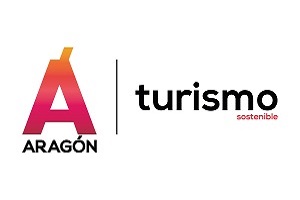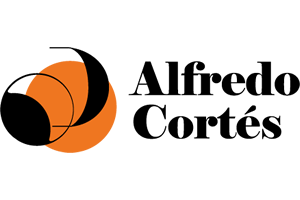“Why don’t we create a company and sell quality proteins? That’s the question Pablo and Alberto Menéndez asked themselves when, while studying in Zaragoza, they became fond of the gym and what is now usually called ‘fitness’. It didn’t take them long to put this idea into action and, since 2017, the Potential Nutrition brand is already a reality with a clear bet, that quality they named in their original question.
“For us, when we were 17 or 18 years old, we started to really like the whole gym thing. And, when we went to train, we would see people taking the protein shakes,” Pablo recalls about those first steps. “The problem was that there was a lot of controversy about the fact that not all shakes were pure, but had other types of amino acids or were mixed with other substances,” he says.
That concern was the reason why these two brothers, born in the Aragonese capital but raised in Zamora, decided to start a business in which they currently offer cow’s milk whey protein, known as whey, and other food supplements such as creatine, glutamine or branched amino acids.

Thus, and at first, with the factory installed in Zamora, they began to produce “in a very modest way, but betting on quality”. Currently, six years after its foundation, Potential Nutrition’s plant is located in Cuarte de Huerva and has customers all over Spain.
Knowing “100%” the product you are selling
Due to work demands and the rigors of entrepreneurship, it is now only Pablo who is at the head of a company that, from the raw material it acquires from its suppliers, generates the products that finally reach the consumer. An aspect that, he emphasizes, differentiates him from most of his competitors.
In fact, he recalls how, in the early days of the brand, they contacted companies that “directly manufactured the products, both in Spain and in Europe”; that is to say, and as he exemplifies, “they already sell the ready-made jars”. “This is how most food supplement brands work,” he adds.
Therefore, he points out that something that makes them different is that at Potential they contact directly with the suppliers of the raw material, both the aroma and the proteins or the rest of the supplements they market and, once they arrive at their facilities, they work and mix them until they generate a new product. “That is the only way you can know 100% of the product you are working with,” he stresses.
However, not everything can be based on trust in the manufacturers of the raw material and, therefore, when they started their business venture, they carried out analyses that helped them to choose the one that most convinced them.

Tests that, as he points out, are also essential for the protein buyer to know the real composition of what he is buying. In this respect, Pablo explains that it is the aminogram – a schematic representation of the amino acid composition – that “will show whether a protein is really good or not“.
However, he says that there can also be traps in these tests. For this reason, he says that it is HPLC (liquid chromatography) analysis that is much more reliable than other options that are, however, more common. “You do do Kjeldahl analysis, which measures the nitrogen in the product and, through that, you calculate the percentage of protein. But the trick is that you can raise the nitrogen by adding another substance,” he laments.
Although at the cost of other issues, such as a lower price and the convenience of having others completely elaborate the final product, the commitment to quality is having an effect, as the co-founder of Potential Nutrition emphasizes when he talks about the brand’s users: “A comment that is repeated by many customers is that, when they try this type of product, it seems very different to what they have tried before”.
For the physical, digital environment
Customers who, by the way, are mostly found in the digital arena. Social networks, search engine optimization or advertising in the online arena are the stage for finding their market niche. “What has given us the most visibility is working with influencers. In this sector, if you don’t work with them, you’re finished,” he adds.
And, beyond the traditional environments of protein shakes, such as bodybuilding, the head of Potential says that consumers of these products are already being found in other spheres. “It’s not like it used to be,” he stresses.

“Now it is reaching other areas, such as the elderly, since, as they catabolize, they need that protein intake that they probably can’t get from a traditional meal. Doctors and nutritionists also prescribe them for people with certain pathologies,” he explains.
Now, and looking to the future, Potential sees a market field to be explored with attention, that of vegan products. “It’s something that has a great future,” says Menéndez, who at first was reticent about something he suspected might be a fad. “In the food field there are many,” he justifies himself.
“But not at all, it’s not that it’s the future, it’s that it’s the present, there are many people who are vegan or vegetarian and who need that protein intake,” he reflects on the current scenario. In fact, the brand has already marketed products focused on these audiences, such as protein obtained from peas, although they are now studying other alternatives to address this area. “It is a very important niche that needs to be worked on,” he says.














